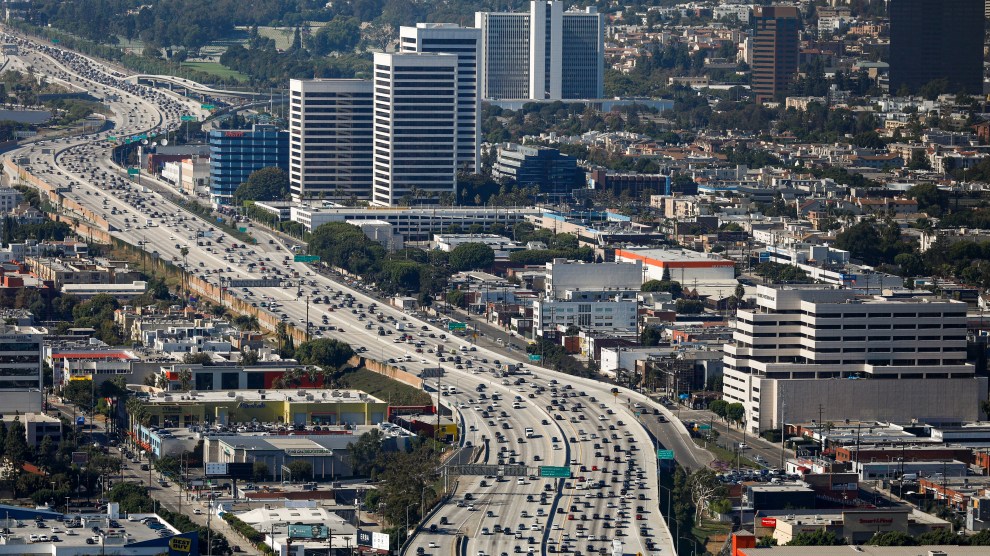
Imagine this—sans emissions.Brandon Sloter/Image of Sport/AP
The movement to electrify the nation’s automotive fleet took a huge step forward this week when a group of California air regulators voted to ban gas-powered cars by 2035.
California, the nation’s largest auto market, plans to require that all new cars sold in the state be emissions-free by 2035. Currently, about 16 percent of new cars sold in the state are electric. California will have to boost that number to 35 percent by 2026, and to 68 percent by 2030. And at least a dozen other states are expected to follow suit.
“That regulation is ambitious, and is on par with what is necessary to encourage rapid transition of the economy towards cars that are electrified,” Yonah Freemark, a senior research associate in the Metropolitan Housing and Communities Policy Center at the Urban Institute, told me.
California’s announcement, in concert with the recently passed Inflation Reduction Act, signals a major milestone in the goal of slashing emissions by 2030 to stave off uncontrollable global heating. While the IRA is projected to dramatically reduce emissions, some analyses show that a very small percentage of that reduction would come from the transportation sector, which accounts for the largest share of the United States’ emissions. It would be impossible to measure the individual effects of each climate regulation, but Freemark called the electrification of California’s cars “the most influential change.”
For decades—except under Trump—historically smoggy California has enjoyed a waiver under the Clean Air Act allowing it to set stricter emissions standards than the federal government. More than a dozen states that have followed California’s lead in the past are likely to institute their own gas-free car requirements. But there are still legal hurdles to overcome: 17 Republican attorneys general have sued to revoke California’s waiver and defang the new regulation.
Even if it succeeds, California’s switch to electric will not be a panacea for the nation’s transit woes. Gas-guzzling cars will remain on the roads until they’re phased out like the horse and buggy. The rule does nothing to address the nation’s traffic safety crisis or to facilitate the transportation of masses of people from point A to point B without unwieldy vehicles whose production requires destructive mining. But, hey, it’s a start. Beep, beep: electric vehicles coming to dominate your dangerously car-reliant society.







